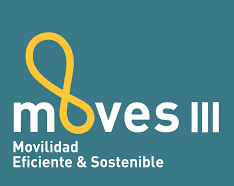All the internships,
internationally
internationally
Search our 34.320 internships –
One word is enough
Our mission:
To gather all the internships on the planet
The #1 European board for internships abroad.
Universities - request a free trial.
Companies are looking for interns
Do an internship
at a fast-growing startup

102
offers
26
internships
Glovo
Bosnia and Herzegovina, Bulgaria...

86
offers
26
internships
Doctolib
France, Germany...

224
offers
21
internships
Delivery Hero
Argentina, Austria...

34
offers
20
internships
Backmarket
France, Spain

31
offers
16
internships
Papernest
France, Spain

62
offers
12
internships
Celonis
Denmark, France...

43
offers
11
internships
Veepee
Belgium, France...

42
offers
10
internships
Criteo
Cyprus, France...

20
offers
10
internships
Exotec
Belgium, France...

44
offers
9
internships
OVHCloud
France, Germany...

34
offers
9
internships
Aircall
France, Germany...

161
offers
8
internships
Factorial
Italy, Mexico...
What interns are saying

Good for a first internship
The missions were not really interesting because it was on phone and it's to repetitive but the atmosphere at work was really good. The salary was very high for an internship and it helps to understand how to work in a company. The managers were well listening and nice. Being in Amsterdam is a chance because it's a cosmopolite city with a lot of things to do.

Where Knowledge Meets practical
* Assist in preparing legal documents such as indictments, International arrest
warrant
* Provided legal assistance to vulnerable individuals and communities
* Conducted outreach programs to educate communities on their legal rights
warrant
* Provided legal assistance to vulnerable individuals and communities
* Conducted outreach programs to educate communities on their legal rights

Great experience, learned a lot
I have been very wall welcomed in the team, learned a lot about financial analysis and been able to gain autonomy rapidly.

A nice way to learn teaching at schools
It was a great opportunity to work with two experienced and skillful teachers. Also, their positive attitude and the objective reviews of our academic staff were a huge help.

Research and development
This internship was very interesting, I was assigned to many different tasks related to research on tuna, mussles, beer etc.
I was welcomed warmly, trusted and worked in autonomy.
I could work on different projects, with different actors of the seafood cluster, in different labs.
I met a lot of different people that helped me improve and get confident in what I do.
I was welcomed warmly, trusted and worked in autonomy.
I could work on different projects, with different actors of the seafood cluster, in different labs.
I met a lot of different people that helped me improve and get confident in what I do.

A complete course
It was a very rewarding experience, combining figures and interpersonal skills.
My tasks:
• Carry out strategic analysis: industrial goods, low voltage and mobility sectors
• Research of potential targets and creation of one-pagers presented to the M&A team
• Conduct modelling and valuation (DCF, trading comparables, transaction multiples)
• Participation of M&A processes (investment thesis, support of the Hager's due diligence team, post-merger integration strategy)
• Deals (Full acquisition): Pmflex (Italy, EV of €250m); confidential (French greentech company, EV of €40m); confidential (Australian switchboard manufacturer, EV of €22m)
My tasks:
• Carry out strategic analysis: industrial goods, low voltage and mobility sectors
• Research of potential targets and creation of one-pagers presented to the M&A team
• Conduct modelling and valuation (DCF, trading comparables, transaction multiples)
• Participation of M&A processes (investment thesis, support of the Hager's due diligence team, post-merger integration strategy)
• Deals (Full acquisition): Pmflex (Italy, EV of €250m); confidential (French greentech company, EV of €40m); confidential (Australian switchboard manufacturer, EV of €22m)

A great start to a field I really loved!
Assisted executives and proactively managed office needs ensuring smooth operation and timely completion of projects. Responsible for researching market and contacted sponsors, key liaison for contacts with 15 clients and 10 non-governmental organizations, coordinated and managed execution of public relations assignments while rchestrated the publication of a series of Global Sustain Yearbook projects. I also organized mailing lists and weekly newsletters, coordinated communication of events with the use of social media tools and communicated corporate value to clients, stakeholders and Non-Governmental Organizations (NGOs).

Internship to discover the work of a technician
I did this internship to put myself in the shoes of a technician, to understand his work and working conditions.
I worked in a printed circuit analysis laboratory. It was a very repetitive job.
I worked in a printed circuit analysis laboratory. It was a very repetitive job.

Useful experience
My internship proved to be an influential experience because marketing is a very challenging field in the banking industry within a small marketing team. Throughout this opportunity, it helped me to improve my problem-solving skills by tackling various unforeseen situations. It also helped me to master my analytic, communication, and management skills. I have proven to meet all the deadlines and that I am a maximalist when it comes to work. Consequently, this internship ignited a greater passion for marketing within me.

A very educational experience
This internship was incredible, I learned a lot about managing a network of 8 grocery stores. I had a lot of interesting missions to fulfill, such as human resources management, commercial control, store inventory, ... This internship was my first step into the world of business management and I much loved.

Initiation à l'analyse des données de séqu...
Specialized in bioinformatics analysis with a focus on DNA microarray genotyping data. Investigated the genetic condition Xeroderma pigmentosum, employing advanced data analysis software such as Uniprot, OMIM, and NCBI for comprehensive analysis
Conducted an in-depth systematic literature review to address gaps in genetic disease knowledge and to navigate the challenges associated with limited prevalence and etiology information, exacerbated by high rates of consanguinity.
Played a vital role in integrating collected genetic data into an ongoing database construction, positioning it as a powerful tool for data-driven decision-making.
Gained valuable insights into the unique genetic characteristics of diseases in the Tunisian population.
Conducted an in-depth systematic literature review to address gaps in genetic disease knowledge and to navigate the challenges associated with limited prevalence and etiology information, exacerbated by high rates of consanguinity.
Played a vital role in integrating collected genetic data into an ongoing database construction, positioning it as a powerful tool for data-driven decision-making.
Gained valuable insights into the unique genetic characteristics of diseases in the Tunisian population.

Hostel One Batllo | Assistant ManagerHostel One Batllo |...
uring my tenure as an Assistant Manager intern, I played a pivotal role in the launch and management of a dynamic new hostel under the Hostel One brand (now known as One Fam), starting in February. I was actively involved in the pre-opening phase, where I meticulously assembled my own team and developed operational processes from the ground up. My responsibilities included continuous leadership and oversight of the hostel, resulting in its achievement of a remarkable top 3 rating among all hostels in Barcelona. At the time, it proudly held the esteemed position of being the #1 hostel on Booking.com. My primary dedication has always been to create an exceptional environment conducive to the growth and success of my team members. I am honored to share that our collective efforts led to a nomination for the prestigious title of 'Best New Hostel in the World 2022' on Hostelworld.
Latest internships offers
Get an internship experience at a company
Fashion Jobs
Stage - Assistant E-Commerce
Fashion Jobs
Paris, France

Analyste risque de crédit et de portefeuille H/F
Crédit Agricole
France

Beca Banca Privada- San Sebastián
Bankinter
San Sebastian, Spain

Stage Ingénieur d'Affaires F/H
Vinci
Toulouse, France

Finance Intern
Moët Hennessy
Singapore, Singapore
Natixis
Internship - 6 months - Portfolio Infra & Energy F/M
Natixis
Paris, France
Nunsys
Foros de Empleo
Nunsys
Work from home

Stażysta / Stażystka | Usługi Transakcyjne, M&A | Advisory
Deloitte
Katowice, Poland

Stage - Business Analyst. Inventory Control F/H - Samaritaine
Le Bon Marché
Paris, France

2027 | EMEA | London | Transaction Banking (TxB), Risk | Summer Analyst
Goldman Sachs
London, United Kingdom

Customer service
WOCOMO SL
Barcelona, Spain

Revenue Accounting Intern (Summer 2026, In Person - San Francisco)
Paramount Pictures
San Francisco, United States
Opinions from students
 KUNXU - Banking, 2024
KUNXU - Banking, 2024
international vibe
Impact and tight course schedule, great alumni and job resources
 Marcel - Business Studies, 2023
Marcel - Business Studies, 2023
Good for students that want to go global
The campus itself is not the largest, but all students course business, law or politic-related studies. Thus, you are guaranteed to come out of the school with an amazing network of like-minded peers. I had to remove one star for how clunky and slow their internal system is, there is much to be improved in that area.
 Matthew - Business Studies, 2023
Matthew - Business Studies, 2023
An elite Italian university
High quality teaching with smaller seminar style teaching.
 Maciej - 2021
Maciej - 2021
Great Old University overshadowed by lack of coordination, planning, resources and a 50/50 chance of getting a powertripping staff member as a lecturer.
Have you ever wanted to know what your class schedule is at least 2 weeks before the start of the year because you actually have a part-time job/full-time job?
Have you ever wanted to meet top of their class Professors who teach with general respect for students?
Have you ever wanted to go to a College organized Music Event held on the giant campus grounds that would be well thought out and planned accordingly?
Have you ever wanted to get to know more about working on Office Package provided to you by the College so you can use it on your PC/Laptop?
Well if you answered Yes to any of those questions then by any means do not enlist in this college.
1. UAM is incredibly well known for lack of any coordination, logistics or anything else you would connect with an idea of a Good College.
I got lucky with one semester when the Class Schedule was delivered 3 days before the start of the year, my friend in another faculty wasn't so lucky. His schedule was delivered 1.5 weeks after the start of his year.
2. Do not get me wrong, but there are a lot of good, well-spoken, kind, and cooperative Staff Members in this University, but it doesn't mean you won't have at least 1 or 2 Powertripping, mean, egomaniacal people who somehow still stay in their positions despite the review system being opened at the end of every semester for every student to rate his/hers Lecturers. I will never forget Prof. Jarosz telling a person after 68 min of the lecture that they are not allowed to leave the classroom for bathroom if they want to be let back in. Same thing happened with this man's pet peeve of Students getting late to the Classroom by 2-5 minutes especially considering that the main Campus itself is situated in the least reachable part of town unless you live directly near the tram stations that lead to it. Good luck if you rent a room on the other side of the city, live outside of the city in the smaller towns or were just out of luck with the traffic. You will not get into this man's class if that happens. Oh and don't worry he has a patience for first 2 people to ever get late during that year in that particular class, if the limit is reached you are not allowed to get into the class.
Stuff like that happens in different faculties on a daily basis.
3. Not really a big issue as I didn't even attend knowing what a clustercluck this will be, but when a Renowned University hosts an event where people are getting trampled over due to the sheer amount of them, while having only 1/2 entry gates, then yeah, it's a joke.
4. If you get lucky your IT Lecturer will be a sane human being, that lets you bring your own laptop to those classes instead of using the UAM supplied MacBooks. If you're not lucky, like me, you will run into lecturers with weird tastes. Who cares if UAM is supplying you and every other student/staff member with the whole Office Package for Windows? This guy likes to use Libre Office because it works better on his 2006 MacBook (this is not a joke)
All in all, there is a reason why the most used adage used by the students is "If you studied at UAM, you won't laugh in the circus"
If it's your last choice or you are living in Poznań then go for it, if you're out of another city just look for better choices.
Oh, and by the way, the tram system delivering students to the closest station for the Campus? It's being renovated right now for at least 6 months to 1 year so good luck with your commuting.
Have you ever wanted to meet top of their class Professors who teach with general respect for students?
Have you ever wanted to go to a College organized Music Event held on the giant campus grounds that would be well thought out and planned accordingly?
Have you ever wanted to get to know more about working on Office Package provided to you by the College so you can use it on your PC/Laptop?
Well if you answered Yes to any of those questions then by any means do not enlist in this college.
1. UAM is incredibly well known for lack of any coordination, logistics or anything else you would connect with an idea of a Good College.
I got lucky with one semester when the Class Schedule was delivered 3 days before the start of the year, my friend in another faculty wasn't so lucky. His schedule was delivered 1.5 weeks after the start of his year.
2. Do not get me wrong, but there are a lot of good, well-spoken, kind, and cooperative Staff Members in this University, but it doesn't mean you won't have at least 1 or 2 Powertripping, mean, egomaniacal people who somehow still stay in their positions despite the review system being opened at the end of every semester for every student to rate his/hers Lecturers. I will never forget Prof. Jarosz telling a person after 68 min of the lecture that they are not allowed to leave the classroom for bathroom if they want to be let back in. Same thing happened with this man's pet peeve of Students getting late to the Classroom by 2-5 minutes especially considering that the main Campus itself is situated in the least reachable part of town unless you live directly near the tram stations that lead to it. Good luck if you rent a room on the other side of the city, live outside of the city in the smaller towns or were just out of luck with the traffic. You will not get into this man's class if that happens. Oh and don't worry he has a patience for first 2 people to ever get late during that year in that particular class, if the limit is reached you are not allowed to get into the class.
Stuff like that happens in different faculties on a daily basis.
3. Not really a big issue as I didn't even attend knowing what a clustercluck this will be, but when a Renowned University hosts an event where people are getting trampled over due to the sheer amount of them, while having only 1/2 entry gates, then yeah, it's a joke.
4. If you get lucky your IT Lecturer will be a sane human being, that lets you bring your own laptop to those classes instead of using the UAM supplied MacBooks. If you're not lucky, like me, you will run into lecturers with weird tastes. Who cares if UAM is supplying you and every other student/staff member with the whole Office Package for Windows? This guy likes to use Libre Office because it works better on his 2006 MacBook (this is not a joke)
All in all, there is a reason why the most used adage used by the students is "If you studied at UAM, you won't laugh in the circus"
If it's your last choice or you are living in Poznań then go for it, if you're out of another city just look for better choices.
Oh, and by the way, the tram system delivering students to the closest station for the Campus? It's being renovated right now for at least 6 months to 1 year so good luck with your commuting.
 Charlotte - Business Studies, 2023
Charlotte - Business Studies, 2023
Very good school for a career in international business
School with a strong international focus (very large number of foreign partner universities, courses given by foreign professors, possibility of long internship abroad). Support in building your career (definition of your professional project, help in writing your CV, preparation for interviews, etc.)
 Anonymous - Pharmacy, 2023
Anonymous - Pharmacy, 2023
Good search
The school provides also ability to help students find internship
 Youssef - Business Studies, 2024
Youssef - Business Studies, 2024
So far no luck
In my opinion, the school provides good tools and workshops to increase your chances of finding an internship on your own. Besides the giving workshops, the school has a few partnered companies which are open to internships.
 David - Economics, 2022
David - Economics, 2022
Economic's degree in UPF
Majorly UPF is focused on local internships, although ocasionally you can find some abroad offer. Our job board is helpful and user friendly, allowing you to apply easily.
In my case, I cannot take benefit from it because I find my internship via LinkedIn, which a is a tool I would use to complement the job board from UPF in order to find a new one.
In my case, I cannot take benefit from it because I find my internship via LinkedIn, which a is a tool I would use to complement the job board from UPF in order to find a new one.
 Francesco - Management Science, 2021
Francesco - Management Science, 2021
Good opportunities
There is a section of the website of the university with more than 1000 job advertisement of internships and works. There is a matching calculator that analyzes your CV and the requests. There are a lot of conferences about the finding of internships abroad and in Italy.
 Ahmed - Engineering, Technology, 2024
Ahmed - Engineering, Technology, 2024
Encourage Internships and new experiences
The university offers a lot of help and programs, such as Erasmus and Bilateral, for Internships abroad. They post links to sites where I can search for internships. There are zoom meetings from time to time to discuss the things students should do to apply for internships. It's also mandatory that I take internships after the second and third years.
 Florian - 2021
Florian - 2021
Great life and people but bad management
I did my Erasmus in Faro. I enjoyed being in a nice place with great weather and a nearby beach. The portuguese culture is laid-back and the people living there are open minded.
The university is well equipped and the teachers are experts. I had a great experience but the organisation is more or less bad. Timetables were not fixed and the intranet didnt work properly.
The university is well equipped and the teachers are experts. I had a great experience but the organisation is more or less bad. Timetables were not fixed and the intranet didnt work properly.
 Evelin - Business Studies, 2022
Evelin - Business Studies, 2022
Good university but not much practical skills
The university has a very good rating and is popular among European students. There are many international students with Erasmus as well and the school has many partner universities around the globe. However, it did not give my the desired practical knowledge or skills I would have had wished.
Latest articles on hunting for an internship
Le Top-10 des entreprises françaises qui offrent le plus de stages à l'étranger - Septembre 2024
Les meilleurs outils pour trouver un stage - Juin 2024
Guide des 10 compétences à développer pendant ton stage - Mai 2024
Le Top-10 des licornes européennes avec le plus de stages - Mars 2024
Le Top-10 des entreprises françaises qui offrent le plus de stages à l'étranger - Février 2024
Comment trouver un stage à l'étranger
Lettre aux jeunes très orientés carrière professionnelle
Le Top-15 des entreprises françaises avec le plus de stages
Choisir la bonne expérience professionnelle à l’étranger. Stage, bénévolat ou emploi.


 en
en  1.509 companies
1.509 companies 897 in the UK
897 in the UK 33.559 abroad
33.559 abroad

























































































